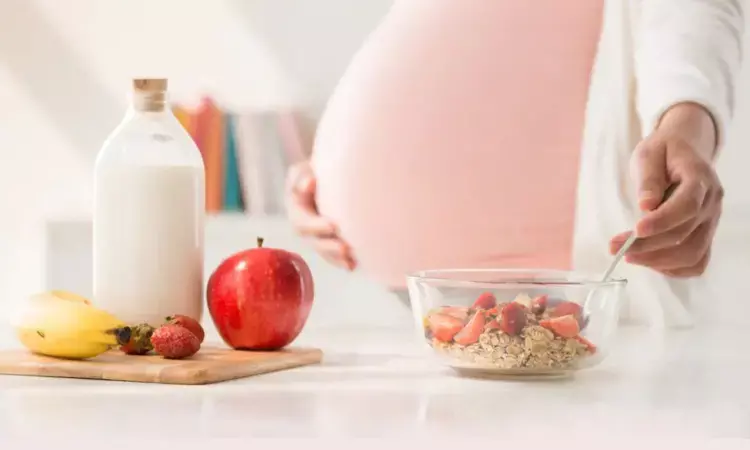- Home
- Medical news & Guidelines
- Anesthesiology
- Cardiology and CTVS
- Critical Care
- Dentistry
- Dermatology
- Diabetes and Endocrinology
- ENT
- Gastroenterology
- Medicine
- Nephrology
- Neurology
- Obstretics-Gynaecology
- Oncology
- Ophthalmology
- Orthopaedics
- Pediatrics-Neonatology
- Psychiatry
- Pulmonology
- Radiology
- Surgery
- Urology
- Laboratory Medicine
- Diet
- Nursing
- Paramedical
- Physiotherapy
- Health news
- Fact Check
- Bone Health Fact Check
- Brain Health Fact Check
- Cancer Related Fact Check
- Child Care Fact Check
- Dental and oral health fact check
- Diabetes and metabolic health fact check
- Diet and Nutrition Fact Check
- Eye and ENT Care Fact Check
- Fitness fact check
- Gut health fact check
- Heart health fact check
- Kidney health fact check
- Medical education fact check
- Men's health fact check
- Respiratory fact check
- Skin and hair care fact check
- Vaccine and Immunization fact check
- Women's health fact check
- AYUSH
- State News
- Andaman and Nicobar Islands
- Andhra Pradesh
- Arunachal Pradesh
- Assam
- Bihar
- Chandigarh
- Chattisgarh
- Dadra and Nagar Haveli
- Daman and Diu
- Delhi
- Goa
- Gujarat
- Haryana
- Himachal Pradesh
- Jammu & Kashmir
- Jharkhand
- Karnataka
- Kerala
- Ladakh
- Lakshadweep
- Madhya Pradesh
- Maharashtra
- Manipur
- Meghalaya
- Mizoram
- Nagaland
- Odisha
- Puducherry
- Punjab
- Rajasthan
- Sikkim
- Tamil Nadu
- Telangana
- Tripura
- Uttar Pradesh
- Uttrakhand
- West Bengal
- Medical Education
- Industry
Rising Heat Exposure tied to adverse maternal, fetal, and neonatal outcomes, suggests study

Johannesburg: With year-on-year record breaking global temperatures, the health risks for vulnerable populations-especially pregnant women and newborns-are increasingly concerning.
Our recent study, published in Nature Medicine, titled "Systematic review and meta-analysis of heat exposure impacts on maternal, fetal, and neonatal health," provides a comprehensive summary of the published literature to date, quantifying the risks and specific periods of susceptibility associated with heat exposure during pregnancy. 2024] – With year-on-year record breaking global temperatures, the health risks for vulnerable populations—especially pregnant women and newborns—are increasingly concerning. Our recent study, published in Nature Medicine, titled "Systematic review and meta-analysis of heat exposure impacts on maternal, fetal, and neonatal health," provides a comprehensive summary of the published literature to date, quantifying the risks and specific periods of susceptibility associated with heat exposure during pregnancy.
Key findings In the largest systematic review of its kind, we reviewed 198 studies that assessed the impact of heat on maternal, fetal, and neonatal health, across 66 countries.
We found that for every 1°C increase in heat exposure, there was a 4% increase in odds of preterm birth across all the studies. During a heatwave, the odds of preterm birth increased by 26%. Similarly, we found marked increases in other adverse outcomes such as increased risk for gestational diabetes, stillbirths, congenital anomalies and obstetric complications with increasing exposure to heat.
There is limited research on outcomes like antenatal bleeding and caesarian section risks that may be related to heat exposure and could contribute significantly to morbidity and mortality.
“Our research provides compelling evidence that heat exposure poses severe health risks for pregnant women and their babies, yet these risks are frequently underestimated”, said Prof. Matthew Chersich, executive director at Wits Planetary Health Research.
Methodology We conducted a systematic review, the highest level of evidence reviews, combining the findings of various smaller studies. We utilised various methodologies to summarise the data, including vote counting, narrative synthesis, summary of effect estimates and meta-analyses.
The urgency of research in climate-health impacts Despite a growing body of literature, research synthesising the impacts of heat exposure on maternal and neonatal health has been limited. Our study aims to bridge this gap, providing insights into how heat exposure increases the risk of maternal, fetal and neonatal outcomes.
A call for action This landmark study comes as world leaders prepare for COP29, offering open-access insights that highlight the urgent need for health-focused climate policies. Wits Planetary Health Research urges stakeholders to integrate these findings into climate adaptation frameworks, with special attention to vulnerable populations in low-income countries.
“This is a pivotal moment for public health and climate action. Protecting the health of pregnant women and newborns must become a priority in our response to climate change” said Dr. Darshnika Lakhoo. “We hope these findings will catalyse change at the policy level, ensuring at-risk populations receive the support they need.”
Next steps This review is “living”, with updates planned every 18–24 months to ensure that new data from this rapidly growing field is integrated to inform our understanding of these critical health risks. Further, we are addressing the research gaps through work in the HE2AT Center, GHAP and BioHEAT projects.
Dr Kamal Kant Kohli-MBBS, DTCD- a chest specialist with more than 30 years of practice and a flair for writing clinical articles, Dr Kamal Kant Kohli joined Medical Dialogues as a Chief Editor of Medical News. Besides writing articles, as an editor, he proofreads and verifies all the medical content published on Medical Dialogues including those coming from journals, studies,medical conferences,guidelines etc. Email: drkohli@medicaldialogues.in. Contact no. 011-43720751


